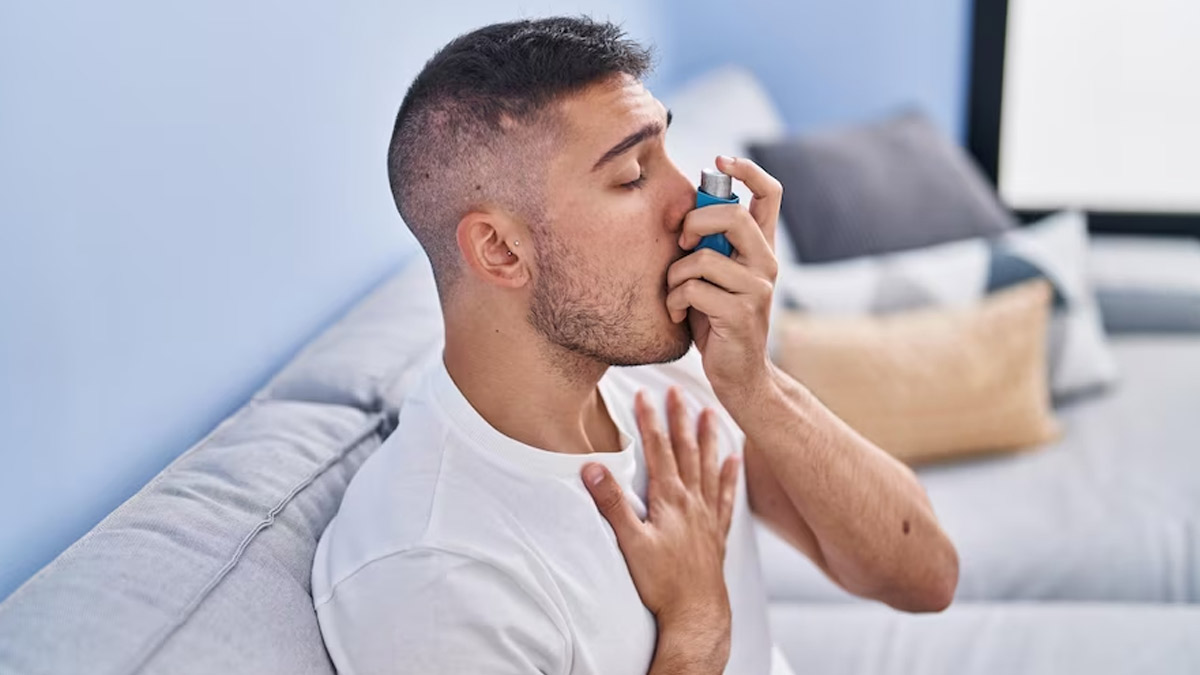
For individuals with asthma, nighttime can be particularly challenging as the body naturally undergoes changes that can trigger symptoms and lead to nighttime asthma attacks. This includes chest tightness, coughing, wheezing, or shortness of breath. If you are looking for ways to prevent night-time asthma attacks, you have come to the right place.
We spoke to Dr Kuldeep Kumar Grover, head of critical care and Pulmonology, CK Birla Hospital, Gurugram, who listed tips to help prevent nighttime asthma attacks and improve overall asthma management.
Causes And Tips To Prevent Night-Time Asthma Attack
According to the International Journal of Tuberculosis and Lung Disease (IJTLD), the prevalence of asthma in India is believed to be around 3% (30 million people), with a prevalence of 2.4% in adults over the age of 15, and between 4%-20% in children.

Regular use Of medicine
Dr Grover said that it is important to maintain consistency in taking prescribed asthma medications. Adhering to your prescribed treatment plan will help keep your airways open and minimise the risk of night-time asthma symptoms.
Identify and avoid triggers
Dr Grover said that it is necessary to identify and avoid triggers to avoid worsening your condition. The allergen exposure occurs in the evening instead of the morning. You are more likely to experience a late-phase response and to have one that is more severe. Consider using air purifiers to filter out allergens and keep the air in your bedroom clean.
Also Read: From Easing Asthma To Relieving Period Pain: Expert Lists Benefits of Asafoetida You Must Know
Manage sinusitis

Dr Grover noted that sinusitis can trigger asthma symptoms, therefore, it is important to keep it in check. Increased nasal drainage can potentially promote asthma in very sensitive airways.
Air conditioning
Dr Grover said that breathing cooler air at night or sleeping in an air-conditioned room may also result in heat loss from the airways. This is because cold air is dry and leads to more coughing.
GERD
Dr Grover said that Gastroesophageal Reflux Disease (GERD) and acidity can trigger night-time asthma attacks. Acid from the stomach can irritate the lower oesophagus and cause airway obstruction. If stomach acid backs up into your throat, it could seep down into your trachea, airways, and lungs, causing a serious reaction. Therefore, take medications to manage GERD and avoid eating spicy food at night.
Hormones
Another factor that can trigger night-time asthma attacks is your hormones. The hormone epinephrine inhibits the release of other chemicals like histamines that result in mucus secretion and bronchospasm.
Also Read: 7 Morning Rituals You Should Practice To Balance Your Hormones
Practise good sleep hygiene

Establishing a regular sleep routine can positively impact your asthma symptoms. By going to bed and waking up at the same time each day, you can maintain a regular sleep routine.
Exercise regularly
Engaging in regular physical activity can strengthen your respiratory muscles and improve overall lung function. However, avoiding exercising too close to bedtime can trigger symptoms and disrupt sleep.
Create a bedroom conducive to good sleep
Creating a sleep-friendly environment can help promote better sleep and minimise asthma symptoms at night. Keep your bedroom well-ventilated, maintain a comfortable temperature, and ensure proper humidity levels. To get rid of house dust mites, wash bed linens regularly at a high temperature.
Drink water
You should keep water near your bed and sip some water when you notice the symptoms. Moisture will relax the airways and help you stop coughing at night.
Disclaimer
The information in this article is provided by an expert, however, we advise you to consult your expert for a treatment based on your body type and medical history.







